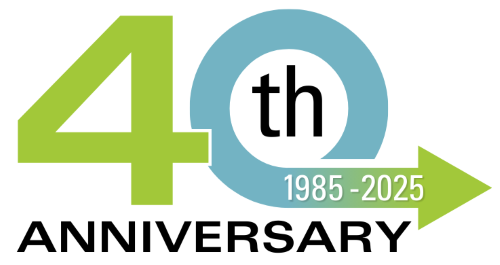Simplify Tax Season with a File Room Purge
You’ve probably heard Benjamin Franklin’s famous quote, “…in this world, nothing is certain except death and taxes.” While we can’t escape taxes, we can certainly make tax season less daunting with proper preparation.
The term “purge” encompasses many things, all involving the removal of unwanted, outdated, or harmful items. When it comes to your files, the goal is to declutter by getting rid of unnecessary documents, which is crucial for a streamlined, lower-stress tax season. However, knowing which documents to purge and which to retain is equally important.
To Purge or Not to Purge?
Having a clear document retention and destruction plan is crucial. Often, you’ll come across documents that have served their purpose or must be destroyed per legal requirements due to exceeding their retention period.
Starting tax season with a file room purge sets the stage for a fresh start, enabling easy access to essential documents without sifting through obsolete ones. Equally critical is retaining records necessary for tax filing or legally mandated retention.
Outlined below is a general guide on what to keep and what to securely shred, though it’s essential to consult state and federal laws for specific retention periods.
Completed Tax Returns
While tax returns can be securely shredded after the mandated retention period, experts generally advise keeping copies indefinitely. This practice serves as proof of filing to the IRS and offers audit protection.
Employee Records
Unless state or federal laws dictate otherwise, retain personnel records for at least three years post-employee termination. This includes payroll records and tax documents. Unclaimed payments should be kept indefinitely.
Sales Tax Returns
State laws required businesses in Oregon and Washington to retain sales and use tax records for the current year plus the five previous years.
Business Property
Records related to business property, such as depreciation and amortization, must be kept for seven years beyond ownership. These records play a crucial role in determining sale basis and related gains or losses.
Post-Tax Season Best Practices
After tax season has passed, it’s an opportune time for businesses to reassess their document management strategies. Purging files post-tax season can not only declutter your office space but also streamline your document organization and enhance data security. Here are some key considerations and best practices for effective post-tax season file purging:
- Review Retention Policies: Take stock of your document retention policies and ensure they align with legal requirements and industry standards. Identify documents that have met their retention period and are eligible for secure shredding.
- Identify Redundant or Outdated Files: Sort through your files to identify redundant or outdated documents that no longer serve a purpose. This includes duplicate copies, drafts, and documents related to closed projects or transactions.
- Digitize and Archive: Consider digitizing important documents that you need to retain for compliance or reference purposes. Digital storage not only saves physical space but also allows for easier retrieval and management of documents.
- Secure Shredding: For documents that are no longer needed in physical form, engage a reputable, NAID AAA Certified shredding service to securely shred them.
- Update Document Management Systems: After purging unnecessary files, update your document management systems and indexing protocols. Ensure that remaining documents are properly categorized, indexed, and stored for efficient retrieval.
- Data Privacy and Compliance: Prioritize data privacy and compliance throughout the purging process. Safeguard sensitive information by implementing access controls, encryption, and regular audits to detect and mitigate security risks.
- Employee Training: Educate employees on the importance of proper document management and data security practices. Provide training on identifying sensitive information, securely storing and disposing of documents, and adhering to company policies and legal requirements.
- Regular Maintenance: Establish a regular shredding schedule to prevent accumulation of unnecessary files. Conduct periodic reviews of document retention policies and update them as needed based on regulatory changes or business requirements.
DataSafe provides comprehensive shredding services to businesses and residents in greater Portland, Oregon and Vancouver metro areas and Southern Washington state. For shredding inquiries or to schedule shredding service, complete the form on this page or call us at: Portland (503) 620-3423 or Vancouver (360) 218-2582.
Need your documents digitized? We also provide document scanning services!

Get Your Quote
"*" indicates required fields

